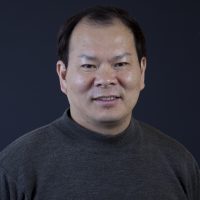
Dr. Guangyu Wang
Associate Dean
Associate Professor, Department of Forest Resources Management
Director of Asian Forest Research Centre
Email: guangyu.wang@ubc.ca | Tel: 1-604-822-2681
Dr. Guangyu Wang is an Associate Dean and Professor of the Faculty of Forestry at the University of British Columbia, and Director of the UBC’s Multidisciplinary Institute of Nature Therapy (MINT), and Director National Park Research Centre. He has been working intensively in national parks, recreation management, and ecotourism development in the USA, Canada, and China. He brings extensive experience in protected areas research and project leadership while successfully managing $4 million in research projects over the last ten years. He has completed several research projects on forest therapy and its contribution to both social and environmental wellness. Currently, his MINT team is mainly focused on the effectiveness of forest soundscape, lightscape, and viewscape on human health and wellbeing. He works very closely with Forest Therapy Hub, ANFT, Korea Forest Welfare Institute, China Forest Therapy Committee, BC Cancer Research Center, and the UBC School of Medicine.
He is the author of numerous books, chapters, technical reports, and scientific papers, including around 100 peer-reviewed international journals. He serves as an Associate Editor of Journals of Forestry Research, Frontier of Ecology and Evolution, Forests, and many others, and Director of Asia Pacific Forestry Education Coordination Mechanism.
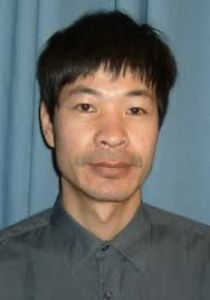
Dr. Zhong Xie
Adjunct Professor, Department of Forest Resources Management
Email: zhong.xie@ubc.ca | Tel: 1-604-221-3012
Dr. Xie is a Senior Researcher at NRC Institute for Fuel Cell Innovation, focusing on Energy, Mining, and Environmental R&D, at the UBC campus (Vancouver). He is an internationally recognized electrochemist in applied electrochemistry, especially in the area of Fuel Cells, Li-Ion Batteries (LIB), Sup-capacitors, Photovoltaic (PV) cells, Photocatalytic-H2 Generation, Photocatalytic Oxidation, as well as Electrochemical technologies for wastewater treatments. Recently he has focused on nature and human wellbeing research, particularly in the research of negative air ions in forests and their role in nature therapy.
Dr. Xie has served as a peer reviewer for many journals and contributes to more than 50 industry, national, and international projects, including major automakers such as Nissan Motor Corp, Toyota Corp, and Mercedes-Benz Canada Fuel Cell Division. His research findings have led to the publication of more than 50 journal/conference papers, two book chapters, and three patents.
Dr. Xie obtained his Ph. D from Central South University (of Technology). Prior to joining National Lab in 2003, he was a Professor and the Director of the Light Metal division under the College of Metallurgical and Environmental Engineering, Central South University of Technology. He did his postdoctoral research in the Department of Metal and Material Engineering of the British Columbia University (UBC) under Professor David Dreisinger from 2001-2002 and postdoctoral research in the Chemistry Department of Simon Fraser University (SFU) under Professor Steven Holdcroft from 2002 to 2003.
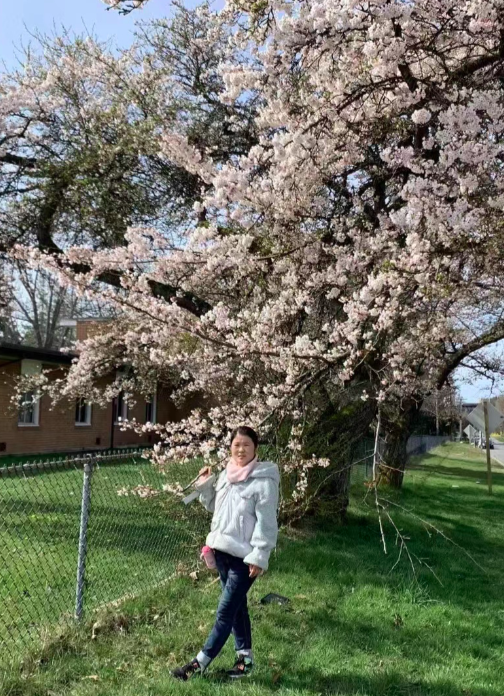
Dr. Mei He
Dr. He Mei is a postdoctoral fellow of the Multidisciplinary Institute of Nature Therapy, University of British Columbia. She is also an associate researcher at Jiangxi Academy of Forestry, membership of the American Society for Nature and Forest Health (ANFT), American ANFT International Certified Forest Conservator, as well as the direction leader of the Forest Therapy innovation team. Dr. He has participated in the completion of more than 20 national and provincial projects, published more than 30 scientific papers, and participated in the compilation of 2 books. At present, she is mainly engaged in the research on the effects, models, and industrial development of forest therapy and nutrition, focusing on the analysis and utilization of plant essence, the practice and application of forest health and health therapy, and the development and construction of forest health and health development models.
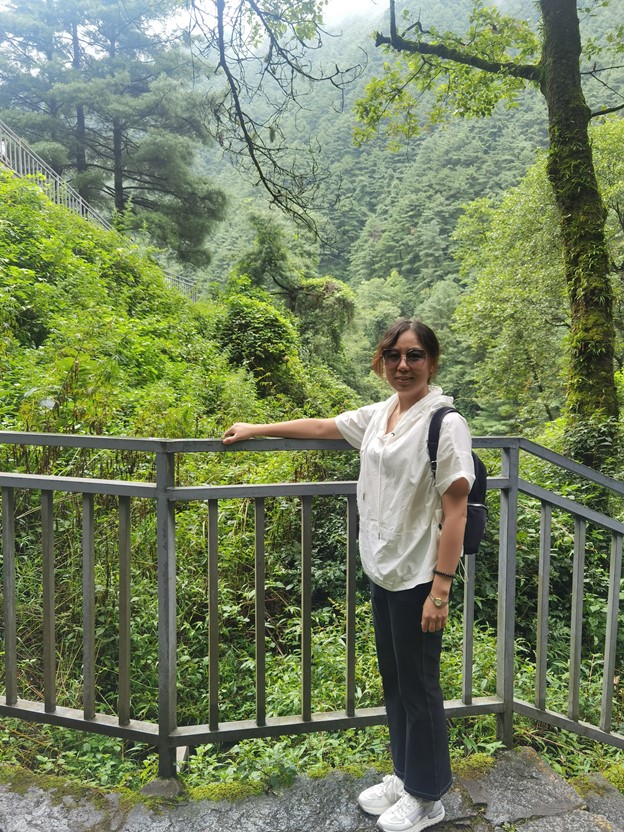
Dr. Zhiling Wang
Dr. Zhiling Wang is a visiting scholar at the University of British Columbia (UBC), and she is also an associate professor in the College of Forestry, Shanxi Agricultural University. Her research focused on the utilization of forest resources, including (i) distribution patterns of therapeutic factors in different forests; (ii) Temporal and spatial variation of volatile components among tree species; (iii) the impact of five senses on mental and physical health. She has published more than10 academic papers on the utilization of secondary metabolite of trees.
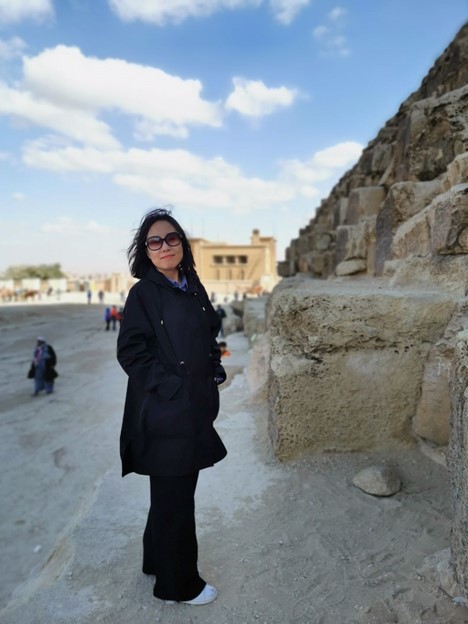
Dr. Huijuan Yang
yhjhebau@163.com
Dr. Huijuan Yang had been a visiting scholar at the University of British Columbia (UBC), and she is also an associate professor at the College of Architecture and Tourism at Hebei Agricultural University. Her research focused on tourism geography and landscape ecology planning based on big data, including (i) visual and therapy assessment of forest landscape in landscape and stand scales; (ii) recreational management in national forest parks; (iii) evaluation and restoration of ecological space in the rural area. She has published more than 20 academic papers and participated in the completion of more than 10 national and provincial projects.
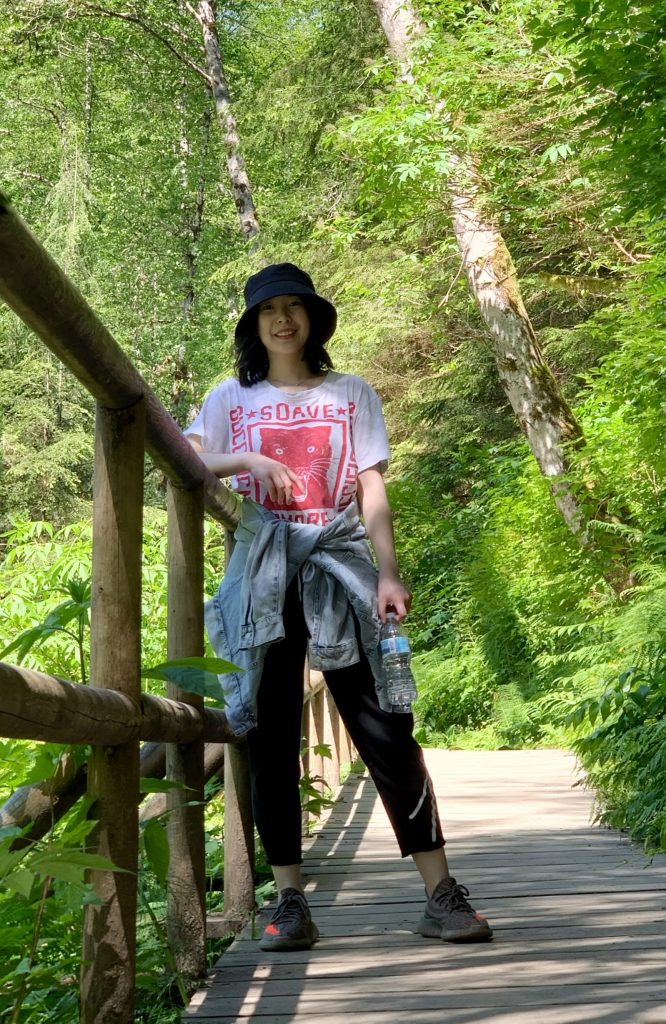
Yawei Wei
Yawei Wei is a Master’s student at the University of British Columbia, Faculty of Forestry, under the supervision of Dr. Guangyu Wang. She is originally from Shanghai, China, and has been in Canada for over eight years. Yawei has a diverse background and interests: she did her bachelor’s and another master’s degree at the University of Saskatchewan in Horticulture and Sustainable Environmental Management respectively. She has participated in many research projects and actively works as a graduate student assistant, laboratory assistant, and research assistant these years. Currently, Yawei is engaged in the research of Forest Therapy and is focusing on single-element and double-element testing of the positive effects of forests. She is also in the process of obtaining a Forest Therapy Guide certificate from Forest Therapy Hub (FTH) with the potential to further educate more people in both English and Mandarin about the Forest Therapy model/concept.
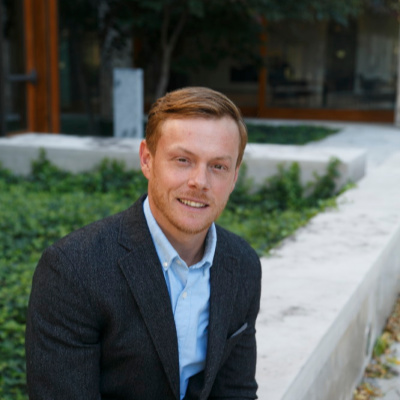
Shawn Slade
Shawn Slade is a Ph.D. Candidate at Western University in the Health and Rehabilitation Sciences Program’s health promotion field. Shawn graduated from the University of Windsor with an Honours Bachelor of Commerce (’06) and Bachelor of Arts in Political Science (’08). Shawn’s passion for health promotion and his professional work as a strength and life coach allowed him the opportunity to complete his MSc research in physical activity at Western University (’14). During this time, he spearheaded Exercise is Medicine on Campus in collaboration with the Canadian Society for Exercise Physiology. After personally benefiting from his experiences and training in various nature connection practices, Shawn switched topics in his Ph.D. to focus on the health-promoting benefits of nature. His Ph.D. dissertation is an interpretative phenomenological analysis of the experience of connecting with nature in the forest. His current research interests are connectedness with nature and health and well-being, forest therapy and other ecotherapies, and phenomenological research methods. He is currently preparing manuscripts for publication from his Ph.D. dissertation. He plans on continuing research in nature connection and forest therapy upon graduation in early 2023 and offering various online and in-person nature connection programs on his acreage in the remote forest of Eastern Ontario.

Siying Huang
Siying Huang was born and raised in Fujian, a province in southeastern China with the highest forest coverage in the country for 40 years. Siying studied for her undergraduate in environmental art design at Xiamen University. Currently, she is focusing on the psychological and physiological effects of Forest Therapy on humans.
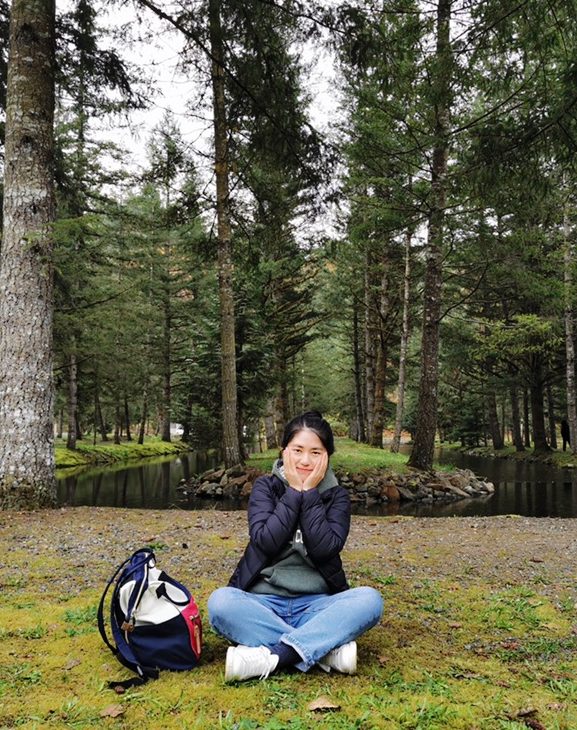
Jin Wang
Jin Wang was born and raised in Inner Mongolia, and she studied her Ph.D. degree in the Chinese Academy of Forestry. As a person who is close to nature, Jin is really interested in forest therapy. Her project is about the Sustainable Development of Forest Therapy in China.

Dr. Yinbo Zhang
zhangyinbo@sxu.edu.cn
Dr. Yinbo Zhang is a visiting scholar at the University of British Columbia (UBC), and she is also an associate professor of the College of Resources and Environment at Shanxi University of Finance and Economics. Her research focused on biological geography and biodiversity conservation, including (i) distribution patterns of biodiversity based on the database in national and regional scales; (ii) priority conservation of biodiversity based on Systematic Conservation Planning (SCP); (iii) assessment of threatened status of plants according to IUCN Red List Categories and Criterion; (iv) impacts of climate change on biodiversity based on the species distribution modelling (SDM). She has published more than 30 academic papers in Biological Conservation, Biodiversity and Conservation, Journal for Nature Conservation, and others.

Ping Zhang
pingzhang@sicau.edu.cn
Zhang Ping is a lecturer at the College of Landscape Architecture and Horticulture of Sichuan Agricultural University in China. Her research focuses on landscape environment and public health. The research projects she is involved in include: Principal Investigator for the Department of Education project “Study on the Avoidance Path of Homogeneous Landscape in Ancient Towns,” Department of Education project “Research on the Landscape Image of Rural New Tourism Communities Based on MDP,” National Park Research Center project “Study on the Potential Supply and Actual Use of Cultural Ecosystem Services in the Giant Panda National Park Based on Flagship Species,” Chengdu Social Science project “Research on the Rural Tourism Preferences and Formation Mechanism in Chengdu City Based on Social Media,” Sichuan Agricultural University Dual Support Program project “Study on University Campus Perceived Restoration,” Sichuan Provincial Forestry Center Hospital, Tangjiahe National Nature Reserve, Xgimi Technology, and the International Cooperation Research Project with the University of British Columbia (Asia-Pacific Forestry Research Center and Forest Health and Wellness Research Center) “Study on the Relationship between the Giant Panda National Park and the Health and Well-being of Medical Personnel.”
Collaborated with Tongji University School of Architecture and Urban Planning on the Sichuan Provincial Major Science and Technology Project—”Construction of Multi-sensory Perception System and Its Health Benefits Research for Jiuzhaigou World Heritage Site Tourism.”
Her Research Achievements include: Published monograph “Beautiful Countryside—Creation of Production, Living, and Ecological Spaces,” and authored 11 papers in SCI, SSCI, EI, and other journals. Reviewed 2 SCI papers.
International Experience: Visiting Scholar at Louisiana State University and the University of British Columbia. Member of the expert group at the Wenchuan Doctoral Workstation of the Giant Panda National Park.
Xin Wang
xin.wang@ubc.ca
Xin is a Ph.D. student in the Faculty of Forestry at the University of British Columbia. Her academic journey began with a bachelor’s degree in landscape architecture, where she cultivated a profound interest in the connection between humans and nature. Building on this foundation, Xin pursued a master’s degree in forestry, honing in on the restorative effects of both indoor forest therapy programs using virtual reality and outdoor forest therapy activities.
Having earned forest therapy certification, Xin has actively guided forest therapy programs catering to diverse demographics, including children, college students, and the elderly. Her current Ph.D. research is centered on optimizing the benefits of forest therapy for various groups. Xin is deeply involved in conducting forest therapy programs tailored for firefighters and high school students. Additionally, she focuses on the strategic planning of forest therapy sites to enhance people’s sensory experiences and facilitate profound restorative effects.
Gonghan Sheng
jerrys92@mail.ubc.ca
Gonghan is a master student in the Faculty of Forestry at the University of British Columbia, under the supervision of Professor Guangyu Wang. Gonghan’s bachelor degrees were from the University of British Columbia and the University of California (Berkeley), majoring both human geography and asian studies. During this time, he was specifically engaged with social justice in terms of policy making (human geography) and political and traditional thoughts of asian-pacific regions. The scholarships and awards he acquired or shortlisted proves his contributions, not only to academic studies but also to social inclusion and diversity. Currently, Gonghan is engaged in the research of forest therapy, specifically for “nature connectedness” in terms of topophilia design that is useful for health and well-being improvements. He has also worked as a research assistant and participated in other environmental projects such as national park development, and/or peace-keeping mechanism of parks/conservation areas. He now plans on continuing research and phd degree in forest therapy after graduation.


